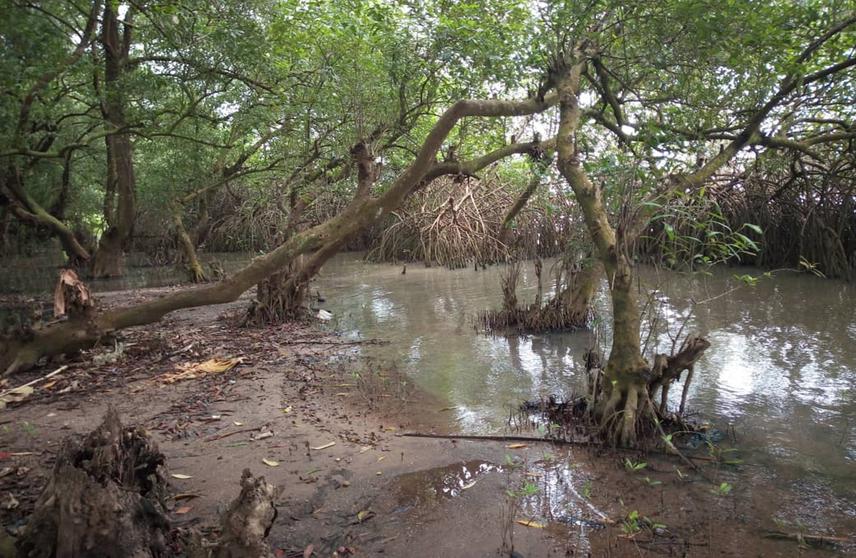Aliou Fousseni
Mangroves are essential ecosystems playing ecological and socio-economic roles for riparian communities and aquatic species. Despite that importance, the Beninese mangroves are subject to degradation, reducing their surface with high risks of biodiversity loss. Investigations showed that the mangroves in southern Benin lost 17.68 % of their surface between 2005 and 2015 (Orekan et al., 2019). The principal causes of mangrove destruction include among others fishing, traditional salt production and sand-mining activities for which the actors cut off the mangrove vegetation for various purposes such as basket and shelter construction, firewood (Adounkpe et al., 2021). It is therefore important to promote sustainable management of fisheries resources and conserve fish biodiversity and the mangroves.

Degraded Mangrove Ecosystem at Djegbadji. © Aliou Fousseni.
This project has been designed in order to develop community-based strategies for biodiversity conservation in the Coastal Lagoon, RAMSAR site 1017. Specifically, it aims to (i) assess fish diversity in the coastal lagoon (ii) determine the impacts of sand-mining, traditional salt production and other anthropogenic activities on the fisheries resources and the mangrove ecosystems and (iii) develop and promote community-based strategies for conservation of fish biodiversity and mangroves ecosystems. The research methodology includes field works for fish sample collection and analysis, surveys to evaluate the impacts of anthropogenic activities and trainings and sensitizations to develop strategies and empower the stakeholders on fish and mangrove conservation.
The project intends to provide accurate information on fish diversity in the coastal lagoon with a focus on the threatened species. It will give an insight of the impact of anthropogenic activities on fisheries resources and the mangrove ecosystem. Moreover, conservation guidelines and strategies will be developed to promote biodiversity conservation and the protection of the mangroves. Additionally, awareness of the different stakeholders involved in the exploitation of fisheries and mangrove resources will be raised through sensitization and training sessions on the importance of mangrove ecosystems for fish conservation and the services that these ecosystems provided to the riparian communities. They will be equipped with practical knowledge, skills and tools to implement efficient conservation actions.
Finally, community initiatives such as environmental education, improvement of salt production technics, etc. will be promoted to reduce pressure on the mangroves and, therefore, improve the conservation of fish biodiversity in the coastal lagoon.